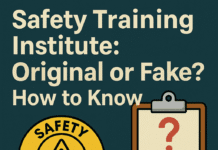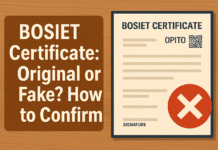
Safety Management Specialist (SMS)
Safety in any workplace is paramount, and ensuring a safe environment for employees and the public requires specialized expertise. This article dives into the world of Safety Management Specialists (SMS) and their pivotal role in upholding safety standards across various industries.
Introduction to Safety Management Specialist (SMS)
Safety Management Specialists, often referred to as safety officers or safety coordinators, play a crucial role in overseeing and implementing safety measures in workplaces. Their responsibilities range from developing safety protocols to ensuring their effective execution.
Responsibilities of a Safety Management Specialist
The role encompasses a myriad of responsibilities, including risk assessments, creating safety policies, conducting training programs, and monitoring compliance with safety regulations.
Qualifications and Skills Required
Becoming an effective SMS involves a blend of education, experience, and specific skills. A background in occupational health and safety, coupled with strong communication and problem-solving abilities, is often sought after in this field.
Risk Assessment and Prevention Strategies
Identifying potential hazards and devising preventive strategies is at the core of an SMS’s duties. Implementing measures to mitigate risks is essential for maintaining a safe working environment.
Training and Education Programs
Developing comprehensive training programs for employees ensures that safety protocols are understood and followed. Regular workshops and seminars are conducted to keep the workforce informed and updated on safety practices.
Collaboration with Stakeholders
Effective communication and collaboration with management, employees, and external stakeholders are vital for the successful implementation of safety protocols.
Technology Integration in Safety Management
Utilizing technology for safety improvements, such as implementing safety apps and leveraging data analytics, has become increasingly important in modern safety management.
Evolving Trends in Safety Management
The field of safety management is constantly evolving, with emerging technologies and methodologies shaping the way safety is approached and managed.
Challenges Faced by Safety Management Specialists
Despite advancements, SMS professionals encounter challenges such as resistance to change, budget constraints, and the need for continuous adaptation to new regulations.
Industry-Specific Safety Regulations
Different industries have their own safety regulations, and SMS professionals need to tailor safety protocols accordingly to ensure compliance.
Global Impact of Safety Management Specialists
Safety Management Specialists contribute significantly to global safety standards and participate in international safety initiatives, impacting not just local workplaces but the broader global community.
Career Opportunities and Growth Prospects
The demand for SMS professionals is on the rise, offering various career paths and growth opportunities in occupational safety and health.
Success Stories and Case Studies
Highlighting successful safety implementations and real-life case studies showcases the effectiveness of SMS strategies in different workplace settings.
The Ethical Dimension of Safety Management
Balancing safety requirements with business objectives involves ethical considerations that SMS professionals need to navigate while ensuring a safe work environment.
A Safety Management Specialist (SMS) is a professional responsible for implementing, managing, and ensuring the compliance of safety procedures and protocols within an organization. Their primary focus is on identifying potential hazards, assessing risks, developing safety policies, conducting safety training programs, and investigating incidents or accidents to prevent future occurrences. SMS professionals collaborate across departments to promote a safe work environment and mitigate risks to protect employees, assets, and the overall community.Conclusion
In conclusion, Safety Management Specialists are integral to maintaining safe working environments across industries. Their multifaceted role in risk assessment, education, and collaboration shapes the safety landscape, ensuring the well-being of employees and the public.
How to Obtain SAMTRAC Certification
National Occupational Safety Association (NOSA)
FAQs
- What qualifications are needed to become a Safety Management Specialist?To become a Safety Management Specialist, a relevant bachelor’s degree in occupational health and safety, environmental science, engineering, or a related field is often required. Additionally, certifications such as Certified Safety Professional (CSP) or Occupational Health and Safety Technician (OHST) can enhance qualifications.
- How do Safety Management Specialists stay updated on changing regulations?Continuous education and professional development are key. SMS professionals attend seminars, workshops, and conferences focusing on safety regulations and industry updates. Subscribing to industry publications and being part of professional networks also helps them stay abreast of changes.
- What industries benefit the most from Safety Management Specialists’ expertise?While safety is essential in all industries, sectors such as construction, manufacturing, healthcare, and transportation greatly benefit from the expertise of Safety Management Specialists due to the high-risk nature of their operations.
- What challenges do Safety Management Specialists commonly face in their role?Common challenges include resistance to change from employees, balancing safety requirements with business goals, budget constraints for implementing safety measures, and the need to adapt swiftly to evolving regulations and technologies.
- How can companies measure the effectiveness of safety protocols implemented by SMS professionals?Measuring the effectiveness of safety protocols involves various methods such as conducting regular safety audits, analyzing incident reports, tracking compliance rates, and seeking feedback from employees regarding the implementation and understanding of safety procedures.





















